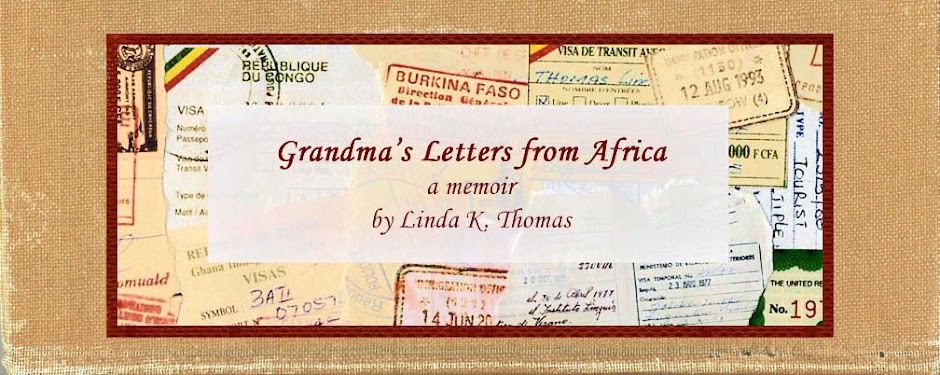There I stood in the lovely, yet profoundly foreign, Taita Hills in southeastern Kenya. Dave and I had just completed our first day of the most demanding segment of our three-month orientation course. All we had learned during the first two months had been in preparation for this phase.
Everything around me was alien (except
for my husband, of course). And I was dreadfully worn out. And I worried, wondering
if I’d make a complete mess of the coming weeks. A lot was at stake. (Click on Tears turning to joy: Could I believe it? Would I believe it?)
I had wandered outside, leaned against The Pearl, and cried—just soft little tears trickling silently down my cheeks. I’m
pretty sure the Mwakodis didn’t know I was crying, and I suspect Dave didn’t
know, either.
At such times, it’s important for
us to cling to hope, no matter how bleak our situation looks.
“Hope is a decision we make, a choice to believe that God can take
the adversity, the disappointment, the heartache, and the pain of our journeys
and use these to accomplish God’s purposes,” writes Adam Hamilton.
“Sometimes God asks us to be with people we don’t want to be with,”
Hamilton says, “to go to places we don’t want to go to, and to do things we
don’t want to do.”
Hamilton nailed it.
I just wanted to be finished with the orientation course.
I wanted to get back to “civilization,”
back to working among people
who understood English,
who ate the kind of food I liked to eat.
I wanted to live in a house with running water
and a flush toilet.
And electricity.
But then Hamilton also offers this wise, helpful, and hopeful
perspective: “. . . God is often most profoundly at work in those times when
we’re confused, broken, or wounded.” (The Journey: Walking the Road to Bethlehem)
We need to embrace that truth.
Henri Nouwen writes, “The ups and downs of our spiritual lives
depend on our . . . attentive listening—to the movements of the Spirit of God
within us. Without this listening our spiritual life . . . becomes subject to
the windswept waves of our emotions” (Bread for the Journey).
We need to embrace that truth, too.
And that brings me back to my good old
role model Habakkuk, who told God he was troubled over several things.
God replied,
“Look . . . and watch—and be utterly
amazed.
For I am going to do something
that you would not believe, even if you
were told.”
(Habakkuk 1:5)
And that dear Habakkuk chose to
practice—was willing to practice—attentive listening, willing to wait and watch
to see what God would do. He said:
“I’ll . . . keep watch . . .
I’ll wait to see what the Lord will say
and how He will answer me.”
(Habakkuk 2:1)
Okay, then, I had told myself
on that dusky Taita Hills evening.
I will do what Habakkuk did.
I will watch to see what God will do.
(from Grandma’s Letters from Africa,
Chapter 3)
I reminded myself I needed to follow Habakkuk’s
example of “attentive listening” because God had work to do within my mind and
heart and attitude. What an example, what an encourager, that beloved Habakkuk
has been to me for decades now!
Now, looking back on that evening, I’m
comforted when I read Chuck Swindoll’s words about endurance during trying
times.
Chuck prays, “Lord, we all remember times
of passing through the waters and going through the fire—overwhelming tests and
furnace-like trials.
“And,” Swindoll continues, “we have the
scars to prove it.”
He was referring to Isaiah 43:1-2 in
which God said to the Israelites, “Don’t be afraid. . . . I have called you by
name, and you are mine. When you pass through the waters, I will be with you.
When you cross rivers, you will not drown. When you walk through fire, you will
not be burned, nor will the flames hurt you.” (NCV)
Swindoll continues, “How faithful You
are, Lord, to meet us at every one of life’s contingencies. . . how caring and
accepting, how full of grace and mercy. It is because of Your mercies that we
are not consumed.”
“Now, Lord, do a work deep within our
hearts.
Provide us with fortitude for the
trials of life—
those we’re enduring and those on the horizon.
Help us come to terms with negative
attitudes. . . .
Give us eyes of faith to see beyond the
predictable,
beyond the facts and figures.
Open us to a whole world of
possibilities
because You are the God of the
impossible.
“Encourage us, Father, with thoughts
that send us into our future with hope
and joy.”
(from The Prayers of Charles R. Swindoll)
“Our hope is in the Lord. He is our
help, our shield to protect us. We rejoice in him because we trust his holy
name. Lord, show your love to us as we put our hope in you” (Psalm 30:20-22,
NCV).




